Now that you are an adult and your parents are older, it may become your responsibility to care of them. Even if they don’t need round-the-clock care, it is important that you make sure your parents are happy and healthy and living well.
Part of that means watching for signs of drug abuse and protecting them from the risk of getting hooked on drugs.
It may seem like a worry you should never have to consider, but the truth is that drug abuse among older Americans is on the rise. Here’s how you can protect your parents.
Protecting Your Parents From Addiction
Get Educated
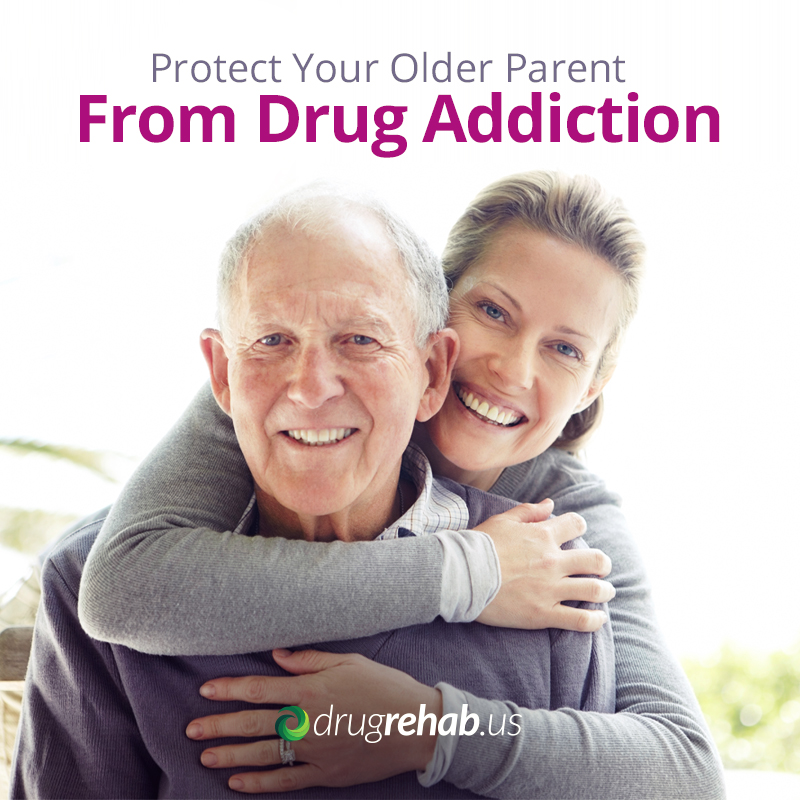 To protect parents from the dangers of substance abuse, it’s important that you understand the issue. Educate yourself about senior substance abuse and addiction so you are aware of the risks and the signs. Although it’s surprising, substance abuse among seniors is not that unusual. In fact, it is a growing phenomenon. Estimates show that by 2020, the number of older Americans needing treatment for a substance use disorder will have doubled. Just a few years ago, nearly five percent of adults over 50 were abusing drugs or alcohol.
To protect parents from the dangers of substance abuse, it’s important that you understand the issue. Educate yourself about senior substance abuse and addiction so you are aware of the risks and the signs. Although it’s surprising, substance abuse among seniors is not that unusual. In fact, it is a growing phenomenon. Estimates show that by 2020, the number of older Americans needing treatment for a substance use disorder will have doubled. Just a few years ago, nearly five percent of adults over 50 were abusing drugs or alcohol.
There are several reasons older Americans are susceptible to substance abuse. One is access to prescriptions. Nearly one-third of prescriptions in the U.S. are written to people over 50. Becoming dependent on habit-forming prescriptions is more likely the more they are prescribed. Seniors are also more likely than younger people to experience certain social factors that may contribute to substance abuse: social isolation, a feeling of uselessness after retirement, the loss of a spouse, and depression.
Talk About Drug Abuse
Armed with the facts, start a discussion with your parents. It may be awkward or uncomfortable at first, but knowledge is power. If you can make your parents understand how risky it can be to abuse their prescriptions or to drink too much, they will likely make better decisions. They may also be unaware just how their emotional health impacts the choices they make regarding substances. Encourage your parents to get involved in social activities and to talk to you if they are feeling lonely, depressed or sad.
Help Manage Prescriptions
Abuse of prescriptions by seniors is often unintentional. Many get hooked simply because they need a drug, like a painkiller, to feel better and then use of it spirals out of control. With many different prescriptions, which is common with seniors, it can get confusing. Your parents may end up making mistakes with doses and combinations. Go to appointments with your parents and take careful notes about medications, dosages and interactions. Help your parents organize medications and monitor their drugs to be sure they are taking them correctly.
Monitor Behaviors And Get Help
Drug abuse has telltale signs, no matter the age of the user. Spend time with your elderly parents and watch for changes in health or behaviors that trouble you. Drug or alcohol abuse can cause changes in sleeping habits or appetite, irritability or anxiousness, confusion, and an increased number of falls. You know your parents, and if anything changes that makes you uncomfortable, be suspicious.
If you do suspect substance abuse in a parent, don’t hesitate to get help. Treatment options are available and seniors are more open to them than you might think. The good news is that statistics show that patients over 50 are the most successful when it comes to getting addiction treatment. Be there for your parents, guide them, educate them and help them when they need it so that you will have many more years to enjoy spending time together.
Get The Know-How On Why Substance Abuse Is Rising Among Seniors
07 Oct 2014
Protecting Older Loved Ones From Substance Abuse
When you take care of your aging parents you are paying back all the years of love and care they took in raising you. You are also doing something out of love. You care for your parents and want them to be safe and comfortable as they age. Whether or not an older parent lives with you, you hope to be an advocate, a caregiver and someone on whom they can rely. What you probably never thought you would have to worry about is substance abuse. Statistics show that older Americans are abusing drugs more than in any previous generation. How do you know if your mom or dad is taking part in this trend and how do you prevent it?
Substance Abuse In Older Americans
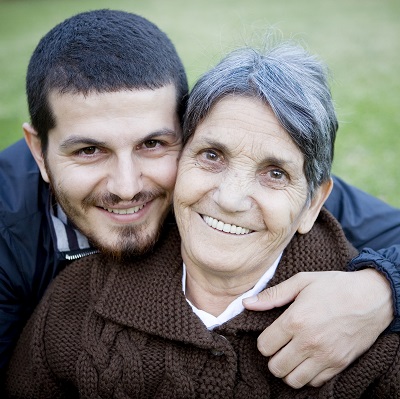 It may seem unlikely, but substance abuse is a real problem in the aging population today. If you have a parent to care for, you should be aware of the issue.
It may seem unlikely, but substance abuse is a real problem in the aging population today. If you have a parent to care for, you should be aware of the issue.
Senior Prescription Drug Abuse
Thirty percent of older Americans take at least five different prescription medications every day, which means they have numerous opportunities to abuse prescription drugs. Abuse of prescriptions is one of the biggest substance abuse problems among the older population. Hospitalization of older patients for prescription-related problems rose nearly 100 percent over a decade from 1997 to 2008.
Senior Alcohol Abuse
The other major type of substance abuse among older adults is alcohol. Access and habit can help to explain why older adults abuse prescriptions and alcohol. Many older people grew up at a time when drinking a cocktail after work every day was considered normal behavior. Depending on the population studied, between 3 and 25 percent of older Americans drink heavily. A particular concern is the combination of alcohol and prescription drugs.
Protect Your Parents From Substance Abuse And Addiction
It is important to understand that there is an issue when it comes to older Americans and substance abuse. You should also understand what makes older adults susceptible to abuse and addiction so that you can protect your parents and any other older loved ones. One reason they may become hooked on drugs is the prevalence of prescriptions. Older people are often prescribed medications, such as painkillers, which are highly addictive. With pain from arthritis, surgery or falls, older adults are more likely than younger people to be prescribed these painkillers.
Another issue with older people is loneliness. As we age our social circles begin to shrink. Many older adults find themselves more alone than ever before. Depression is also a problem as they lose friends or a spouse. Turning to drugs or alcohol to mitigate feelings of sadness, depression and loneliness is not uncommon.
To protect your parents from the possibility of substance abuse or even addiction, it is important that you counteract the factors that make them vulnerable. Monitor the prescriptions that your parents use and talk to their doctors about whether any of them can be abused or are addictive. If any of them are, talk to your parents about the possibility of getting addicted to them. Check with with doctor also to see if any can safely be switched over to a less-addictive prescription
Perhaps most importantly, spend time with your older loved ones. Changing social circumstances can make a powerful impact and you can make a difference. In addition to spending time with them, also encourage your parents to seek out social activities. Get them involved in senior centers where they can meet new people. An active social life, combined with your love and attention, will go a long way toward helping your parents feel good about life. These actions will also help protect them from the growing dangers of substance abuse.
Read More About: The Unimagined Costs Of Having An Addicted Family Member And What You Can Change – Healing Is Possible! Don’t Give Up!
19 Jun 2014
What’s The Deal With Seniors And Drug Abuse?
Thinking about drug abuse, you probably picture younger people popping pills, shooting up or smoking. What is difficult is to imagine is that there is a rising problem among older adults when it comes to drug abuse. The main culprits are prescription medications. Just because a doctor prescribes them does not mean these drugs are always safe. Many prescriptions are susceptible to abuse and it is not only younger people who have used them inappropriately. In fact, surveys show that abuse among older Americans is on the rise. If you care for an older family member be aware of the issue so you can intervene if necessary.
What Are The Dangers For Seniors Abusing Prescriptions?
 There are several prescription medications that people abuse because of the feelings they impart. For many, the abuse starts slowly and seems harmless. Just how dangerous are these medications when taken against a doctor’s direction? It depends on the medication, but with any drug the side effects will be amplified and intensified when more than the recommended dose is taken.
There are several prescription medications that people abuse because of the feelings they impart. For many, the abuse starts slowly and seems harmless. Just how dangerous are these medications when taken against a doctor’s direction? It depends on the medication, but with any drug the side effects will be amplified and intensified when more than the recommended dose is taken.
For seniors there are particular risks associated with abusing medications. Your older loved one is likely taking several medications. When she abuses one or more of them she increases the risk of a dangerous interaction between two or more medications. She may also have more health problems that could be exacerbated by taking too much of one medication. Of course, at any age there is the very real possibility that drug abuse could lead to addiction.
Which Prescriptions Are Addictive?
Any medication that has addictive potential can be abused. These drugs all give the user a pleasant feeling, which is why they can lead to dependence. Be aware of the medications your loved one is using and educate yourself as to their risks and addictive potential. There are three main classes of drugs that are most often abused: depressants, stimulants and opioids.
Depressants, also known as sedatives, have a relaxing effect on the body. For seniors, the most likely type of depressant to be prescribed is a sleep aid. Stimulants have the opposite effect. They cause wakefulness and alertness and are most commonly prescribed as ADHD medications. Your older friend is unlikely to be prescribed a stimulant. Of greatest concern may be the opioids. These are painkillers that also produce a high when taken in larger doses. Codeine, morphine, oxycodone, hydrocodone, fentanyl and hydromorphone are examples of prescribed opioids.
What Are The Signs Of Abuse?
If you have an older adult in your care, or are concerned about a parent or friend who takes prescription medications, watch out for signs of drug abuse. Look for signs of intoxication. For example, if she slurs her speech, stumbles or falls more often, or if her behavior in general seems off to you, she may be under the influence.
Also look for other signs that may be subtler, such as changes in behavior or routine. She may experience a change in sleeping habits or appetite as a result of abusing medications. You may also observe increasing irritability or confusion. She may act suspiciously as well. For instance, she might make multiple appointments with different doctors in order to get more prescriptions or start going to different pharmacies to avoid suspicion.
Some of these signs of drug abuse may also indicate a new or worsening health problem. In either instance, you should be concerned for the senior in your care. Start a conversation with her and encourage her to see her doctor to discuss options for dealing with the issue.
Read More About Seniors And The Surge In Substance Abuse – And Help Your Loved One Today!
The phrase older and wiser suggests that as a person ages they learn a lot about how to deal with life. Experience is a profound teacher. However, it’s also true that as a person enters their golden years they are entering new territory. The retirement years are full of all kinds of changes and challenges. Sometimes there are so many of them that seniors are left scrambling for a way to cope.
Older People And Life Challenges That Effect Drug Abuse
 The American Geriatrics Society reports that older adults may be more apt than others to form a substance addiction by virtue of the many life challenges they encounter. Loneliness, grief, lack of purpose, boredom and chronic pain confront seniors with full force. As many as 20 percent of senior citizens msuse or abuse their prescription drugs or alcohol.
The American Geriatrics Society reports that older adults may be more apt than others to form a substance addiction by virtue of the many life challenges they encounter. Loneliness, grief, lack of purpose, boredom and chronic pain confront seniors with full force. As many as 20 percent of senior citizens msuse or abuse their prescription drugs or alcohol.
Alcohol – Most Abused Substance By Seniors
The substance most often abused by seniors is alcohol, with 60 percent of addiction treatment admittances for older adults relating to alcohol use. According to the Substance Abuse and Mental Health Administration (SAMHSA), 5.5 million seniors struggle with an alcohol use problem. This is in part because alcohol is a socially acceptable mode of self-medication.
But for seniors, drinking too much alcohol can have serious consequences. The truth is that alcohol affects older bodies more than younger ones. The senior’s body is slowing down in every way, including metabolism. That means that alcohol is processed much more slowly in an older person’s body. Because of this the National Institute on Alcohol Abuse and Alcoholism recommends that adults age 65 or above consume no more than one alcoholic beverage per day.
Older People Abusing Prescription Drugs
Prescription drugs are another source of potential abuse for seniors. To begin with, senior citizens are prescribed more medication than any other age group of Americans. But just as with alcohol, medications are also metabolized more slowly by older bodies.
Sedatives (barbiturates, diazepam, chlordiazepoxide) used to help older patients sleep are highly addictive. These medications tend to store up in fat deposits which make their effects even longer-lasting in older bodies which typically carry more fat. This is no small problem with the diazepam drug Valium prescribed to 100,000 older Americans annually.
Seniors Abusing Illegal Substances At A Greater Rate?
More people over age 50 are using illegal, illicit drugs. SAMHSA reports that treatment admittances for patients over 50 addicted to illegal drugs doubled and has continued to rise.
The good news in all of this is that when addiction forms late in life, with intervention and treatment there is hope for recovery.
See That There Is Hope For Recovery For YOU!
If You Or Your Elderly Loved One Need Help With Drug Or Alcohol Abuse – Call Us Now – We Are Here To Help!
03 Apr 2014
Why Is Substance Abuse Rising Among Seniors?
Drug abuse is not only for the young. Statistics indicate that seniors are using and abusing drugs at an ever increasing rate. It’s a problem that not many are willing to talk about openly, but the risks to our older loved ones are great and it is an important issue to address. The biggest problems when it comes to substance abuse in the elderly are alcohol and prescription drugs. If you care for an older friend or family member, be aware of the possibility of substance abuse and know the signs so you can step in and help.
Why Are Seniors Abusing Drugs And Alcohol?
 There are several reasons older Americans are abusing substances in growing numbers. One explanation is that the population of seniors has been growing as the baby boomer generation ages. That population age shift, however, is not the only issue. Socializing often drops off with retirement and aging. With loneliness may come self-medication with alcohol or readily available prescription medications. Another possible issue is mental health. Many seniors either do not recognize the signs of mental health problems in themselves, or they are embarrassed to seek treatment and turn to self-medication instead of getting professional help.
There are several reasons older Americans are abusing substances in growing numbers. One explanation is that the population of seniors has been growing as the baby boomer generation ages. That population age shift, however, is not the only issue. Socializing often drops off with retirement and aging. With loneliness may come self-medication with alcohol or readily available prescription medications. Another possible issue is mental health. Many seniors either do not recognize the signs of mental health problems in themselves, or they are embarrassed to seek treatment and turn to self-medication instead of getting professional help.
What Are The Dangers Of Senior Substance Abuse?
Substance abuse is risky and dangerous for anyone at any age, but the elderly are particularly vulnerable to the consequences. Many seniors have several prescriptions for medical reasons. Mixing these drugs with each other and with alcohol can have serious and even fatal outcomes. Between 20 percent and 30 percent of adults over the age of 75 have a problem with drinking, which means that the possibility for harmful interactions is great.
Abusing drugs and alcohol, or both, causes dangerous side effects for seniors. These include sleeping problems, delirium and cognitive issues, difficulty balancing and an increased number of falls, and depression and anxiety.
How To Recognizing The Signs Of Substance Abuse
If you think it is impossible that your older loved one is abusing drugs, take a look at the facts. According to Johns Hopkins Medical School, 12 percent to 15 percent of older adults who seek medical help for any reason are abusing prescription drugs. While some also abuse illegal drugs, prescriptions are the real issue. As with people in other age groups, seniors may underestimate the harm that these legal drugs can cause. Opioid painkillers and benzodiazepines are among the most frequently abused. Make sure you know the signs of abuse so you can recognize them in your older loved one.
The most important thing to look for is change. Any kind of change in regular habits or behaviors may indicate a drug abuse problem, or a medical problem. In either case, your loved one will need to see a doctor. With drug abuse, you may see changes in sleeping habits and appetite. Look for unexplained weight loss or gain. An increased number of falls or injuries can indicate inebriation. Changes in mood, such as irritability, agitation or confusion often accompany drug abuse. Also be suspicious if your loved one is seeing multiple doctors or filling prescriptions in several different pharmacies.
Seniors substance abuse is a growing problem and one that could have serious individual and public health implications. The consequences of abusing drugs and alcohol become more serious as we age. Take good care of your older loved ones and always have your eyes open to the signs of abuse. Intervening is important and could prevent harm and even save a life.
Seniors make up 13 percent of the population of the United States, yet they account for more than one-third of the prescription medications. One-half of all seniors were taking at least three prescription medications as of the year 2000, up from one-third in 1988.
With so many seniors taking prescription drugs, it shouldn’t be surprising that they are a part of the rising problem of prescription drug abuse. Nevertheless, senior drug abuse remains a largely hidden problem, in large part because elderly people do not fit the common profile of someone dealing with drug abuse or addiction.
In the coming decades, this problem can only be expected to grow. Seniors are one of the fastest growing segments of the population, as the first wave of the baby boom generation has reached senior citizen status. By 2030, seniors are expected to make up one-third of the country’s population.
What Are The Hidden Symptoms Of Senior Addiction?
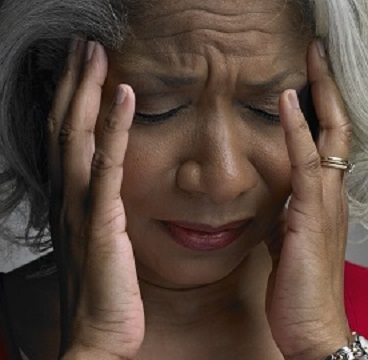 Identifying the signs and symptoms of drug problems in seniors presents various challenges. One of the biggest difficulties is the fact that a number of these signs and symptoms can mirror normal signs of aging.
Identifying the signs and symptoms of drug problems in seniors presents various challenges. One of the biggest difficulties is the fact that a number of these signs and symptoms can mirror normal signs of aging.
Among the symptoms of drug use that may be mistaken for signs of aging are disorientation, poor balance, memory loss, chronic boredom, depression, shaky hands, poor balance and mood swings. Since seniors do not fit the stereotypical profile of someone with drug problems, recognizing when such symptoms spring from drug use and not just aging is a challenge for loved ones and health professionals alike.
Drug Abuse Vs. Misuse – Is There A Difference?
When examining drug problems among seniors, it is helpful to make the distinction between drug abuse and drug misuse. Drug misuse refers to the use of prescription medications in a way that does not comply with the prescription instructions. Drug misuse can be entirely unintentional, and the result of unclear instructions or confusion. Drug misuse can also be intentional; for example, patients may take more than the prescribed dose without consulting their doctor if they feel that the prescribed dose is not having an effect. In general, the term misuse is used to refer to the incorrect use of legitimately prescribed drugs, with the intent of treating an established medical problem.
In contrast, drug abuse refers to people who use drugs for recreational purposes. They may abuse illegal drugs that have no therapeutic purpose, or they may use therapeutic drugs incorrectly in order to achieve a euphoric high or some other pleasurable feeling.
Both drug misuse and drug abuse can result in drug dependence and other negative side effects. However, drug misuse is usually the easier problem to solve. The most common reason for drug misuse is an ineffective treatment plan, and the problem will usually disappear if treatment is revisited and a more effective plan put in place.
Drug abuse among seniors is much less common than drug misuse. Nevertheless, the problem does exist for 12 to 15 percent of elderly people who seek medical help.
What Are The Commonly Abused Drugs Among The Elderly
Opioid drugs, depressants, stimulants, benzodiazepines and over-the-counter (OTC) medications are the drugs most frequently abused among seniors. Opioids are typically prescribed for pain relief; depressants are prescribed for anxiety and sleep disorders; stimulants are prescribed for narcolepsy and ADHD; and benzodiazepines for anxiety and insomnia.
Opioids are particularly dangerous drugs to abuse or misuse because they are extremely addictive. These medications are chemically similar to the illegal drug heroin, and can be just as addictive as heroin when used incorrectly.
After prescription drugs, alcohol is the most commonly abused substance among the older adult population. OTC medications can react poorly with alcohol, leading to negative consequences that would not otherwise be present with these medications. They can also react badly with prescription drugs.
Find Out The Strategies To Address Senior Drug Problems
Tailoring education, consumer information and screening efforts to older adults are some key steps to reducing drug abuse among the elderly.
Although seniors are the most significant consumers of prescription drugs, promotional and educational materials are often not geared toward them. Helpful tools might include educational materials available in large print and drug diaries to help track medications.
Educational efforts aimed at reducing drug abuse should also keep seniors in mind. Teenagers aren’t the only segment of the population that needs education about drug and alcohol abuse. The more society recognizes that seniors are an at-risk population, the more education and screening efforts may be available in retirement communities, senior centers, city parks and recreation departments, and other places where the elderly can benefit.
Read More About Why Drug Use Is Surging In Baby Boomers
13 Nov 2013
Why Is Drug Use Surging In Baby Boomers?
Statistics gathered by the Substance Abuse and Mental Health Services Administration, or SAMHSA, show a disturbing trend among older Americans. Members of the Baby Boom generation are using drugs and getting addicted to them in record numbers. Whether we can explain the trend or not, the fact remains that elder drug abuse presents some unique problems that require unique approaches for prevention and treatment.
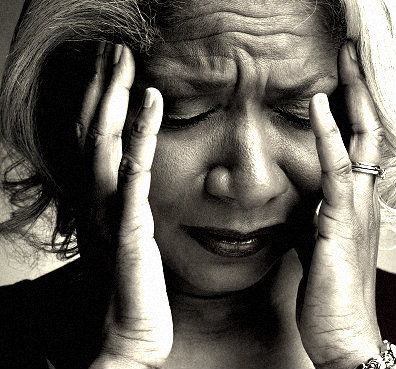 The statistics from SAMHSA show that among older Americans in recent years, marijuana use has increased five-fold, cocaine use has quadrupled, heroin abuse has doubled, and abuse of prescription drugs has more than quadrupled. The survey from SAMHSA also records treatment for drug abuse and addiction and found increases in the numbers of Boomers getting help for alcohol abuse in combination with cocaine use, and for abusing prescription painkillers. Emergency room visits for painkiller abuse and overdoses increased greatly over the last decade.
The statistics from SAMHSA show that among older Americans in recent years, marijuana use has increased five-fold, cocaine use has quadrupled, heroin abuse has doubled, and abuse of prescription drugs has more than quadrupled. The survey from SAMHSA also records treatment for drug abuse and addiction and found increases in the numbers of Boomers getting help for alcohol abuse in combination with cocaine use, and for abusing prescription painkillers. Emergency room visits for painkiller abuse and overdoses increased greatly over the last decade.
Explanations And Complications Of Drug Abuse In Older Americans
At first glance, the statistics surrounding the use and abuse of drugs in older Americans seems surprising. However, it is important to understand that we are discussing a generation of people who came of age in the 1960s, a time of experimentation and rebellion against authority. In tracking the drug and alcohol behaviors of this generation over the years, finding that they now, in their older years, are still using drugs is not a surprise. It only seems shocking when compared with the generations that came before them.
Unfortunately, drug abuse is even more of a problem for a person in his 50s and 60s than it was when he was in his 20s. As we age, our metabolism slows. For an older person abusing drugs or drinking too much alcohol, the time it takes to metabolize and get out of his system is much longer. An older person using may be intoxicated for longer and, therefore, at risk for more accidents and injuries.
Another issue is that drug users in their 50s or 60s are more likely to have health problems than they did in their younger years. Drug or alcohol abuse may exacerbate these problems, or even interact badly with prescribed medications. Furthermore, the symptoms of these other health conditions may mask the usual signs of drug abuse or addiction.
Signs Of Drug Abuse
Drug abuse and addiction are serious problems at any age, but in older Americans they present greater risks and complications. It is important to be aware of the possibility of drug use and to look out for signs in loved ones. Because another health problem may cause symptoms that mask the physical signs of drug abuse, watch for changes in behavior as the sign of a problem. Mood swings that are unexplained could be a sign of addiction, drinking or drug abuse. Changes in personality are also troubling. When someone just doesn’t seem like himself anymore, there could be a problem with drug abuse.
Prescription abuse is a growing problem among all age groups, so look for signs that your older friend or family member is abusing them. This could mean that he is requesting more refills for painkillers, seeing several doctors to get more prescriptions, going to more than one pharmacy or in other ways is trying to get more of his medications than has been prescribed.
Getting Help For A Loved One Abusing Drugs Or Alcohol
If anyone you love or care about is abusing drugs or alcohol, it is important to help him seek treatment; with an older person, it is especially imperative. Drug abuse can cause even more problems for someone who is older and should be stopped in its tracks. Having the courage to confront your parent, spouse, or other loved one about your suspicions could just save his life.
Confrontation is never easy so be prepared. Bring one or two other people along, friends or family members your loved one trusts. Be ready with solutions so that you are not simply accusing, but helping. Do your research ahead of time and find facilities for treatment that are prepared to work with older patients. As the problem of drug abuse continues to rise in the older demographic, more treatment centers are focusing on the age group. You should be able to find treatment plans that will suit the specific needs of your loved one and that will help him feel comfortable while getting well.
09 Oct 2013
Baby Boomers And Addiction – Part 2
Continued from Baby Boomers and Addiction – Part 1
There may be nothing specific to baby boomers that puts them at a higher risk of addiction, but their numbers will challenge the system. In order to adequately meet the need, new treatment approaches are being developed. The New York Times articles “Advice on Addiction in Boomers” Part 1 and Part 2, answer readers’ questions on the issue of addiction in this demographic.
Dangers Of Senior-Related Addiction
People in this age group will experience the greatest risk for alcohol-related health conditions such as heart disease, kidney failure, and liver disease. They also face the risk of falls and alcohol-related injuries that are made more severe by age.
Boomer-Based Approaches To Treatment
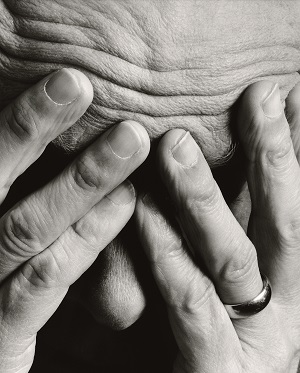 While people are people and addicts are addicts, the Baby Boomers have always been, to some degree, their own animal. This has inspired new approaches to treatment and recovery designed to take characteristics of this population into consideration in developing more effective approaches.
While people are people and addicts are addicts, the Baby Boomers have always been, to some degree, their own animal. This has inspired new approaches to treatment and recovery designed to take characteristics of this population into consideration in developing more effective approaches.
Dollars and energy naturally go to preventing drinking and educating about alcohol related dangers in the teenage and college population, but statistically, they are not the problem. Older adults often fly under the radar with their problem alcohol use. They assume, by virtue of being adults, that they have their drinking under control. They drink more covertly, it is accepted in their social circles or they isolate and are harder to keep track of.
The question naturally arises: what is the likelihood of recovery for individuals in this demographic? Is it possible to reform after so many years of consistent heavy use or abuse? Is it possible to ‘teach an old dog new tricks?’
According To Dr. Krantz:
“The longer an individual uses a substance, the more changes there are to the chemistry and the neuro-pathways in the brain. The brain essentially becomes re-wired as a result of substance use. In recovery, with abstinence, those pathways can begin to heal, regardless of how long a person has been addicted. Despite the healing of the brain, the disease is forever imprinted, which is why recovery needs to be a lifelong process.”
Concerns Of Adult Children
Boomer alcoholics are raising levels of concern among their adult children—those old enough to recognize a drinking problem and motivated to help their parents find recovery.
Often it is the adult children of substance abusers who are questioning and confronting the disturbing habits and seeking out treatment information for their parents. Thus information and support directed at children on how to help or deal their addict parents will also be needed in coming years.
Societal Impact Of Treating Aging Addicts
The primary concern is increased health care costs as a result of the need to treat a large group of addicts with expensive residential recovery programs. While the past years have seen a decrease in binge drinking and alcoholic patterns in younger generations such as the Millennials, there has been a marked rise in the boomer-aged adults that have been admitted to the hospital for binge drinking, or who have needed medical treatment for drinking related conditions and injuries. Alcoholism also has the potential to exacerbate other pre-existing health conditions thus requiring a higher level of medical care and prescription drug use.
What Can Adult Children Do To Help Addicted Seniors?
Adult children can begin by becoming aware of what constitutes alcohol abuse. According to the piece in The New York Times:
“Several readers asked how to determine if a loved one has an issue with alcohol. The Centers for Disease Control and Prevention defines heavy drinking, or alcohol abuse, as ‘a pattern of drinking that results in harm to one’s health, interpersonal relationships or ability to work.’ Alcohol dependence, also known as alcohol addiction or alcoholism, is a chronic disease with symptoms including ‘continued use despite repeated physical, psychological or interpersonal problems.’
Some other important questions to ask are: Why is he drinking? Is it a coping mechanism? Is it about more than just liking the taste of alcohol? Is he drinking to relax? Is he drinking more than intended? Can he stop at any time and stay stopped?”
Warning Signs Of Substance Abuse
The article provided a general list of red flags to look for when questioning one’s own drinking problem or that of another.
These are some signs and symptoms that often manifest in boomers suffering from substance abuse or addiction issues:
- Drinking begins to interfere with relationships
- Decision making becomes more difficult
- Dementia or falling are more prevalent
- Increased tolerance
- More health complaints
- Chronic pain (it is important to seek treatment somewhere that specifically addresses this issue)
- Mood swings and emotional distancing
- Behavior that is out of the ordinary (for example, someone who plays golf all the time has progressive isolation and begins to give it up)**
If an addict is committed to practicing an addiction and refuses to seek help, there is often little that spouses, children, and/or grandchildren can do to make recovery a reality. However, all attempts and possible solutions should be exhausted. The coming years promise to bring new pathways and solutions in treatment and recovery with the aim of providing hope to baby boomers who suffer from addiction.
**Credit: List taken from The New York Times article “Addiction in Boomers.”


